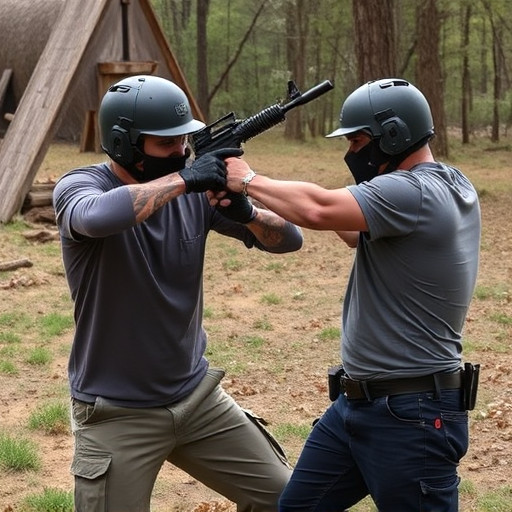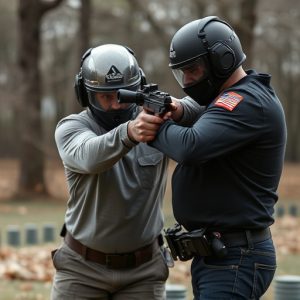State Laws on Civilian Taser Ownership: Safety & Effectiveness Considerations
Understanding state laws is crucial before acquiring a stun gun, as regulations vary widely. These l…….
Understanding state laws is crucial before acquiring a stun gun, as regulations vary widely. These laws cover age restrictions, licensing, training, consent, and penalties. Knowing these ensures legal compliance, safe usage, and responsible ownership, addressing the fact that stun gun effectiveness varies based on individual size, strength, health, training, and environmental conditions. Responsible storage and awareness of risks like accidental discharge are paramount.
“In the ongoing pursuit of personal safety, the civilian ownership of stun guns has garnered significant interest. This article delves into the intricate web of state laws governing such ownership, offering a comprehensive guide for citizens seeking to understand their rights and responsibilities. We explore how varying regulations impact the accessibility of stun guns and delve into critical factors affecting their effectiveness on different people. Additionally, we navigate the legal implications and safety precautions essential for those embracing this self-defense tool.”
- Understanding State Laws Governing Civilian Taser Ownership
- Factors Affecting Stun Gun Effectiveness on Different People
- Navigating Legal Implications and Safety Precautions for Taser Owners
Understanding State Laws Governing Civilian Taser Ownership

Understanding State Laws Governing Civilian Taser Ownership is a crucial first step for anyone considering acquiring a stun gun. The effectiveness of a taser can vary significantly based on factors like an individual’s size, strength, and medical conditions. Therefore, state laws play a critical role in ensuring responsible ownership and safe usage. Each U.S. state has its own set of regulations dictating who can own a stun gun, where they can be carried, and under what circumstances they can be used. These laws range from strict requirements to more lenient guidelines, making it essential for prospective owners to research their local legislation thoroughly.
Knowing the specific rules regarding age restrictions, licensing, and training is vital. Some states permit civilian ownership with minimal restrictions, while others demand rigorous compliance with law enforcement standards. Additionally, state laws often address issues like consent, self-defense limits, and penalties for misuse or unauthorized possession. Understanding these legal parameters enables responsible citizens to exercise their rights while adhering to the letter of the law, fostering a safer environment for all.
Factors Affecting Stun Gun Effectiveness on Different People

The effectiveness of a stun gun, or taser, can vary greatly from person to person due to several factors. Firstly, age and physical build play a significant role; larger individuals may require a higher voltage to achieve the same level of immobilization as someone smaller in stature. Additionally, health conditions like heart problems or medications can influence how an individual responds to a stun device, potentially reducing its effectiveness.
Another aspect is experience and training. A person familiar with tasers and their deployment techniques might be able to minimize the impact by quickly removing the device after discharge, while a novice user may struggle to do so promptly, prolonging exposure to the electrical current. Environmental conditions, such as moisture or weather, can also affect performance; water conductivity can reduce stun gun efficiency, making them less effective in rainy or wet conditions.
Navigating Legal Implications and Safety Precautions for Taser Owners

Navigating Legal Implications and Safety Precautions for Taser Owners
Owning a taser comes with a range of legal considerations that prospective owners must understand to ensure compliance with state laws. The use of stun guns, while marketed as non-lethal alternatives to traditional firearms, is subject to strict regulations across different jurisdictions. These laws often outline the types of individuals permitted to possess and carry tasers, the circumstances under which their use is authorized, and the potential consequences for misuse or illegal possession. As such, prospective taser owners must conduct thorough research into local, state, and federal regulations to avoid legal repercussions.
Safety precautions are equally vital for those who choose to own a taser. Stun guns operate by delivering an electric shock that can incapacitate a target, but their effectiveness varies based on factors like the individual’s size, medical conditions, and resistance. Owners should be trained in proper usage techniques and aware of potential risks, such as accidental discharge or misuse against uncooperative targets. Additionally, responsible storage and maintenance practices are crucial to prevent unauthorized access and ensure the taser remains reliable when needed.
Understanding state laws regarding civilian taser ownership is crucial before considering purchasing a stun gun. Each state has unique requirements, and factors like age, background checks, and training can significantly impact access. Additionally, the variability in stun gun effectiveness across different individuals underscores the importance of responsible ownership and safety precautions. By navigating these legal implications and adhering to best practices, potential owners can ensure they make informed decisions while prioritizing public safety.


